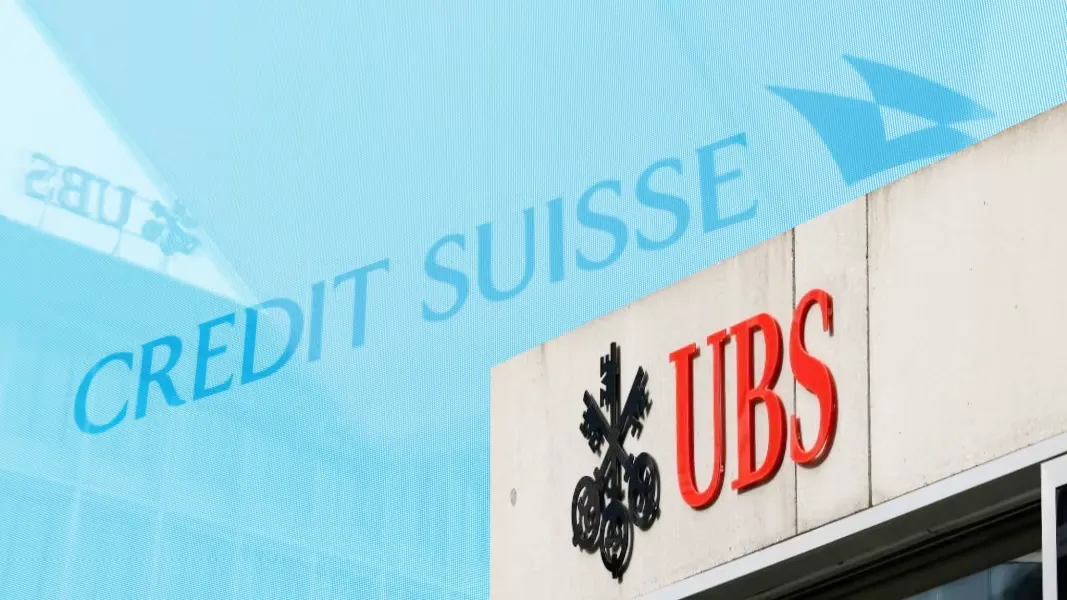The UBS-Credit Suisse Tie-Up Has Led To A $5.6 Billion Loss In Fund Outflows
Since Credit Suisse merged with Swiss rival UBS in July, investors are continuing to redeem billions of dollars from its investment funds under the Credit Suisse brand, and outflows have accelerated in recent weeks.
Financial News has learned that Morningstar reported that net outflows, over the last three weeks since the Credit Suisse CSGN, -1.12% CS, +1.05% merger was announced, reached $5.6 billion from approximately 300 EU and US domiciled funds.
In the week surrounding the shotgun wedding, investors had already pulled around $3 billion from Credit Suisse funds in anticipation of the forthcoming merger; these recent outflows will add to the pressure on the merged firm.
During the period from March 23 to April 6, Credit Suisse funds saw an additional net outflow of $2.5 billion from their accounts, according to the latest figures.
In an interview with FN, Johann Scholtz, an equity analyst at Morningstar, said that the deal still remains uncertain and that it is possible to have a negative impact on Credit Suisse Asset Management before the deal is finalized.
In response to the announcement that "material weaknesses" had been discovered in the bank's controls for financial reporting, the bank began experiencing rapid withdrawals from its funds on March 14.
There was no comment from Credit Suisse on this matter.
A staggering $776 million went out of Credit Suisse's European funds on March 21 - two days after the landmark deal was announced - which remains one of the largest daily outflows recorded out of any fund in the world.
While Credit Suisse's European funds have experienced steady outflows over the past couple weeks, Morningstar's latest figures indicate that they have experienced net inflows of more than $240 million over the last two days - pointing to an early sign that investor jitters are beginning to ease.
As of this writing, the flows data does not include all the funds managed by the asset manager in Europe and the United States, and represent only those funds that have provided Morningstar with daily data.

AJ Bell's investment head, Layth Khalaf, said that a lot of the fund outflows around the tie-up with UBS were likely sparked by investors concerned about the stability of Credit Suisse, as well as those scared by wider turmoil in the banking sector, during the days after the tie-up with UBS UBSG, -1.39% UBS, +1.29%.
Despite that, he suggests that investors might have decided it was necessary to take a belt-and-braces approach given the turbulent market conditions at the time, asking whether those assets needed to be ring-fenced in the event of an insolvency.
There have been a lot of mergers between banks, and the $3.25 billion deal between UBS and Credit Suisse is the largest between two systematically integral banks since the 2008 global financial crisis. Additionally, the asset management units of the two banks have been merged, resulting in Europe's largest money manager with $1.5 trillion in assets.
Sergio Ermotti, who stepped down as head of UBS at the end of 2020 after nine years in that role, has been appointed by Ralph Hamers as UBS chief executive officer. Ermotti took over the role from Ralph Hamers at the beginning of April; he began his role on March 29.
Last month, analysts reported to FN that Ermotti had a difficult time bringing together the two management divisions due to differences in corporate cultures, overlapping product ranges, and technological challenges, which are considered to be the biggest obstacles.
During recent weeks, Scholtz speculated that outflows from Credit Suisse's wealth management business could have been driven by clients of the firm switching to other firms to "lower their concentration risk," if the client is already using products and services provided by UBS similar to what Credit Suisse offers.
According to him, institutional investors who own Credit Suisse funds but are also clients of UBS Asset Management may also be interested in diversifying their portfolios if they have some allocation to UBS funds.

Subscribe to our newsletter!
As a leading independent research provider, TradeAlgo keeps you connected from anywhere.








